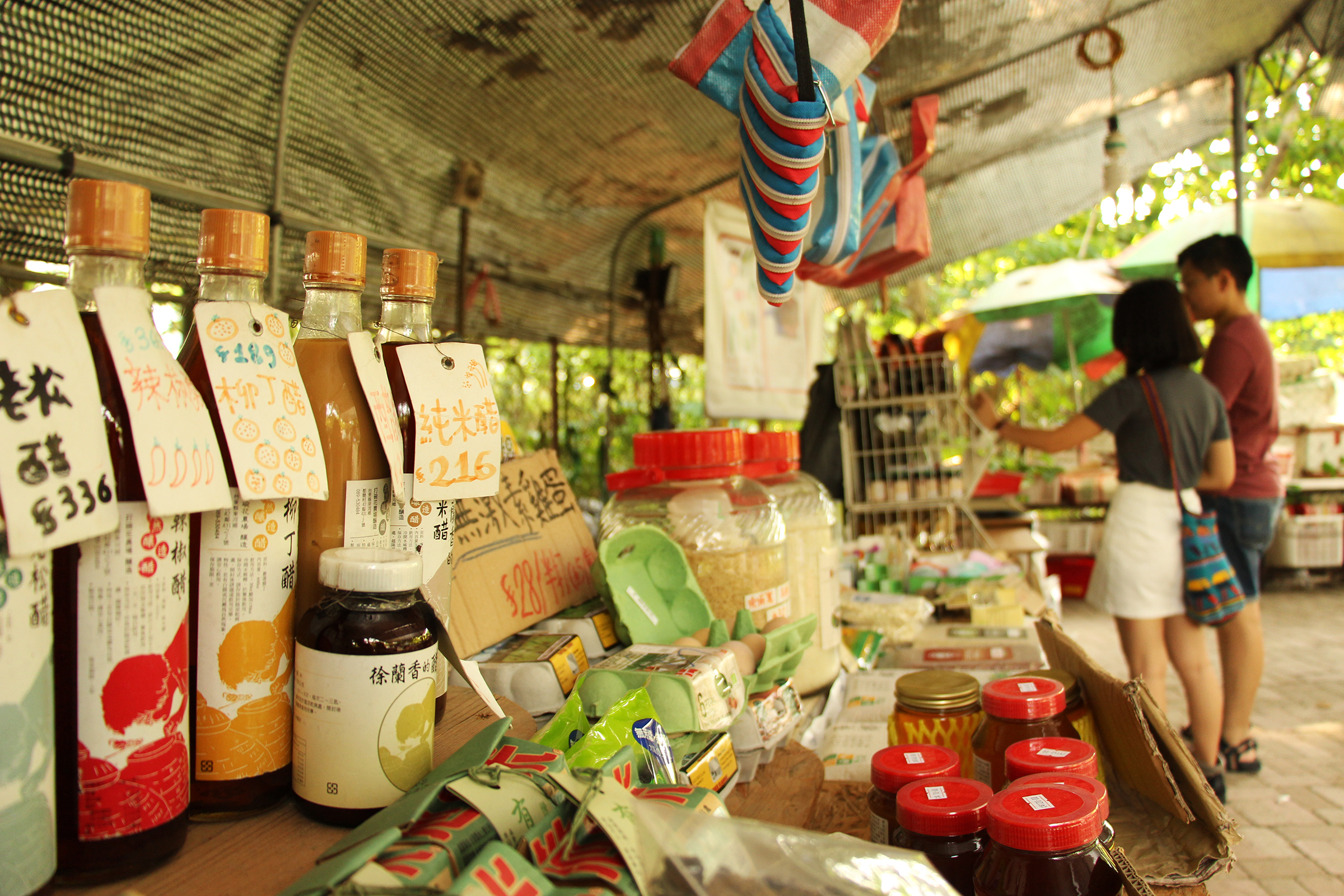Hong Kong’s market movement seeks to revive rural and urban communities from the bottom-up
By Zoe Tam
In Ma Shi Po village, just minutes away from Fanling’s high-rises, there is a hidden oasis of peaceful farmland – the Mapopo Community Farm.
At its peak, more than 700 families lived in the village, but most villagers moved out after indigenous villagers, who leased the land to them, signed the ownership over to property developers. Now, those who remain are left to face the threat of the government’s North East New Territories New Development plan.
Those villagers who have stayed behind and are helping to run the community farm are refusing to give up their way of life. They are organising tours and workshops to promote sustainable farming.
Every second and fourth Sunday is market day at Mapopo and the farm is filled with the sound of children’s laughter and animated conversations on topics ranging from food recipes to protest strategy in the campaign against urban encroachment.

Lau Shui-shum has been farming the local land since marrying into the village decades ago. She is busy sharing recipe ideas with customers interested in buying her organic produce. Her customers compliment her on the quality of her vegetables in return.
Lau is proud to recount a conversation she had with other customers about the future of the farm. “They were like, without you guys, I don’t know where to buy vegetables,” she says.
Before the Mapopo Community Farm was set up five years ago, life was very different for Lau. She would wake at 1 a.m. to first harvest and then take her crops to Fanling’s wholesale dawn market. As a small farmer, she had no grounds to bargain about the price and had to settle for less than she thinks she deserved.
Now, Lau can sleep until 6 a.m. and has complete control on setting prices as the market organisers do not charge farmers any rent or commission to sell their produce here. Lau is also glad the market gives her the opportunity to reach people from outside the village who care about local agriculture as much as she does.
“Hong Kong is not a big city…but if Hong Kong cannot supply some vegetables for locals, this is so wrong. Isn’t it?” she says.
Andy Wong Hiu-hei is a customer who shares this sentiment. He started visiting the market to learn more about the villagers’ way of life after the large-scale protest against funding for the Northeast New Territories Development plan last June.

Although the 42-year-old works in Central and lives in Lantau, he is happy to make the hour-long journey to the market and this is his fourth visit. Wong wants to support the market and show his appreciation for efforts to produce locally grown food. Wong says this and the market’s fair-trade practices inspire him to support local farming. “Hong Kong is a well-developed city and is financially capable of supporting people who would like to live differently. And diversity is one of the foundations of democracy,” he says.
Not all customers care about the survival of local farming when they first visit the place. But Zoey Wong Suk-wai, who works at the community farm, says they have gradually changed customers’ minds.
“At first, people visit the market just because they want to eat healthier, but later they start to care about their community and issues relevant to land and agriculture,” she says.
Zoey Wong says the market is a bridge between farmers and those from the outside. To further strengthen the bond between farm and community and the urban and the rural, the farm has launched a food waste recycling scheme to convert food waste collected in the area into fertilizer for the farm. Customers do not only play the role of consumers but also engage in production.







































